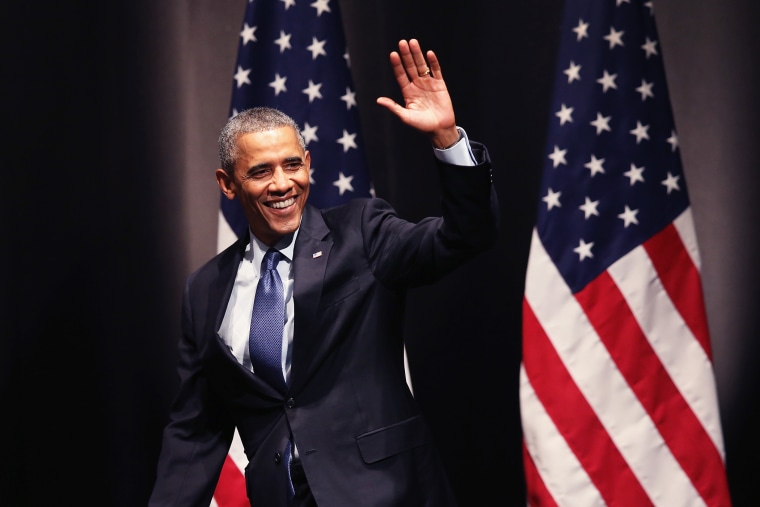In the immediate aftermath of this year's midterm elections, Democrats and Republicans had an interesting disagreement about the nature of the results. Everyone could see the wins and losses, and everyone could read the exit polls, but the parties had wildly divergent interpretations about voters' attitudes.
For Republicans, the 2014 elections reflected a center-right nation reasserting itself, strenuously objecting to President Obama's agenda. For the GOP, this couldn't be more obvious: Republicans nationalized the cycle, President Obama was effectively on the ballot, and Dems lost big. Ergo, the American mainstream wants to see conservative governance going forward.
For Democrats, most notably at the White House, this year's midterms were about something very different: the public's disgust with inactivity. Washington spent the last two years spinning its wheels, accomplishing nothing, and by Election Day, voters weren't rejecting liberalism so much as they were expressing contempt for political paralysis.
With these assumptions in mind, President Obama has been extremely busy lately, announcing a series of major policy breakthroughs. Congressional Republicans seem dumbfounded. "Didn't he see the election results?" GOP lawmakers keep asking. "Doesn't he realize he lost?"
But for Obama and his team, the election results are precisely the reason to aggressively pursue the administration's agenda -- if the public is hungry for change Americans can believe in, the president has been eager to give them exactly that.
And at this point, the Democrats' assumptions about voters' attitudes look pretty smart.
Improving views of the economy have helped hike President Barack Obama's approval rating to a 20-month high, a new CNN/ORC poll showed Tuesday, as markets climbed to record levels at news of an economy in overdrive. More Americans still disapprove of the job Obama is doing as President. But at 48%, Obama's approval rating is at its highest point in CNN polling since May 2013.
This is just one poll, of course, but Gallup's daily tracking put Obama's approval rating at 41% at the start of the month, before climbing to 47% last week.
And all things considered, a presidential approval rating in the mid-to-high 40s isn't too shabby for a guy who's ostensibly ignoring the results of the midterm elections, at least according to his Republican detractors.
I'm reminded of Chris Cillizza's recent piece, published a few weeks ago, declaring once again that President Obama had "the worst year in Washington," largely as a result of the midterm elections. But was it really that bad?
This was the year the economy improved to its strongest level in over a decade and the Affordable Care Act succeeded beyond anyone's expectations. It was the year the president scored foreign policy breakthroughs with Cuba and China, and advanced a landmark immigration policy.
This was the year Obama filled much of the federal judiciary with his nominees, deftly handled some important crises, freed American prisoners in North Korea, and sharply reduced the number of prisoners at Guantanamo Bay.
It's also the year the president saw his approval rating jump, bringing him in line with Reagan's support at a comparable point in his presidency.
I don't doubt that Obama wishes the midterm elections had gone the other way, but Beltway conventional wisdom notwithstanding, maybe 2014 wasn't such a disaster for the president after all?
